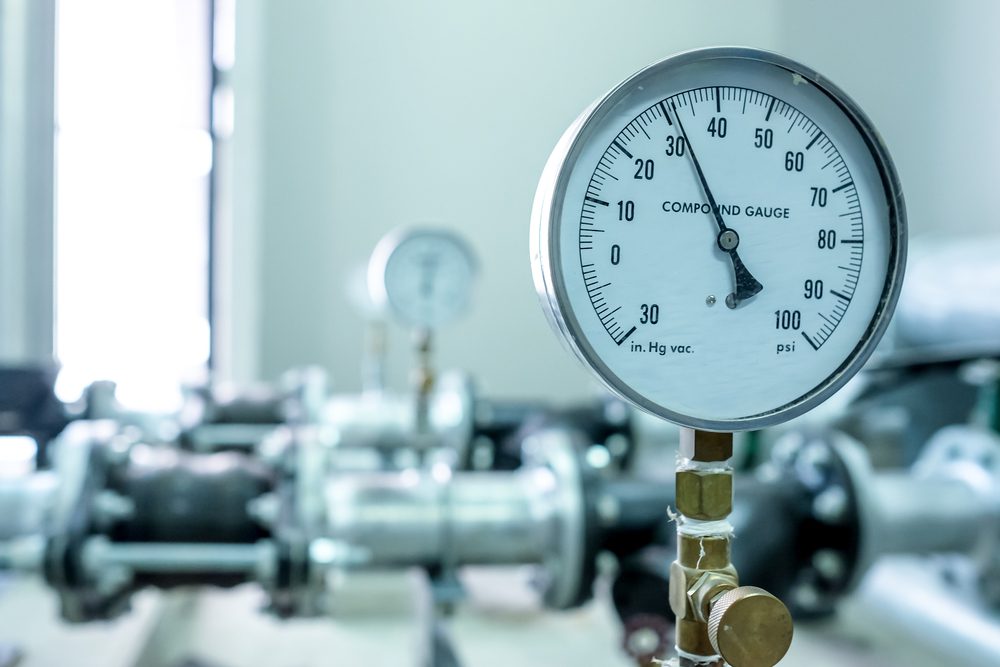
In this article, we will explore the differences between absolute pressure, vacuum (or negative) pressure, and compound pressure so you can understand when it’s appropriate to measure these types of pressure.
Absolute Pressure Explained
When all air is completely removed from a system to create a perfect vacuum, that’s considered absolute pressure. This type of pressure uses absolute zero as a reference and is unaffected by differences in atmospheric pressure.
There are two types of absolute pressure gauges. One uses an isolated sensor and the other uses a non-isolated sensor. Gauges with isolated sensors can be found in places like weather stations or can be used to measure elevation. Gauges with non-isolated sensors work best in closed systems such as a chemical plant.
Vacuum Pressure Explained
Vacuum pressure is negative pressure that’s calculated to be lower than atmospheric or barometric pressure when the surrounding pressure is used as a reference point. Inside the system, this pressure is measured lower than barometric or atmospheric pressure. Typically, you’ll find vacuum pressure gauges best suited for use in systems such as refrigeration, heat pumps, or air conditioning. They also come with a pump that’s used to create the vacuum for the gauge to measure.
In contrast to vacuum pressure, there is gauge pressure. Gauge pressure is positive pressure, meaning that it’s pressure higher than atmospheric or barometric pressure when surrounding pressure is used as the reference point.
Compound Pressure Explained
Compound pressure is a measure of both gauge pressure (positive) and vacuum pressure (negative). As such, a compound pressure gauge is ideal when you need to measure both negative and positive pressure such as within HVAC systems, detecting leaks in pressurized systems, or other similar situations.
Mid-West Instrument
Since 1958, Mid-West Instrument has been an industry-leading provider of world-class differential pressure gauges in the mid-west and beyond. Our team of experts have honed our skills, expertise, and technology so you can be confident that you’re getting the best products in the industry. Want to learn how Mid-West Instrument can help find the right differential pressure instrument for your business? Contact us today to speak with one of our friendly and experienced professionals.

